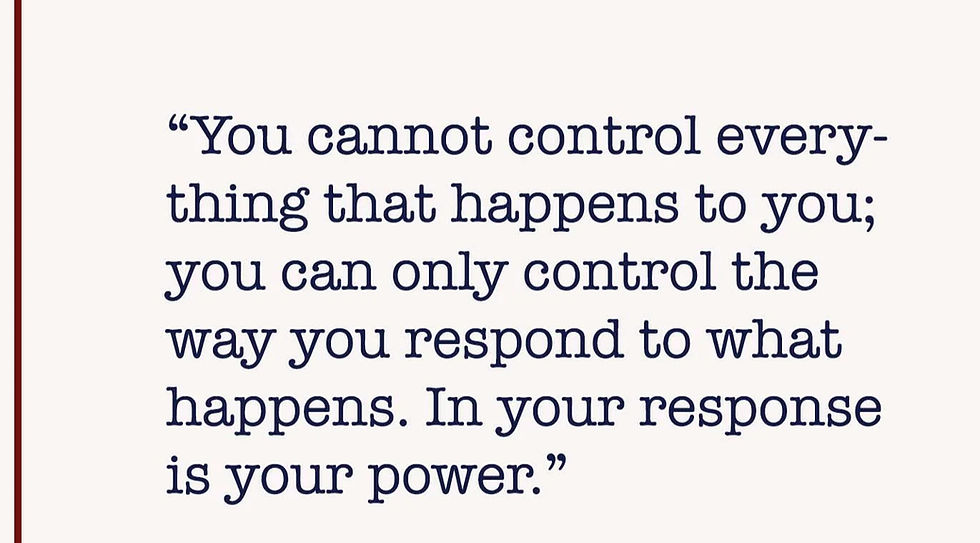Sleep Away your stress in 6 ways
- Kirandeep Kaur

- Mar 13, 2023
- 3 min read
When you think about dealing with stress, sleep may not be the first thing that springs to mind. Finding a new job, sorting out your finances maybe. But getting to bed earlier? Who on earth has time for that?

I hear you, but bear with me. Although many of the reasons humans sleep remain mysterious, we know that sleep is critical for clearing out the accumulation of waste that occurs during the day. Think of it like a bin man coming round every night to remove your wheelie bin full of physical and emotional rubbish.
When you haven’t slept, your emotional brain goes into overdrive. The amygdala – the alarm system responsible for triggering emotions such as fear, sadness, anger or rage – becomes significantly more sensitive. Meanwhile the prefrontal cortex – your rational brain’s CEO, responsible for making all the sensible decisions – becomes diminished. It explains why you struggle to concentrate when you’re tired, and why you feel so emotional and reactive.
Treat yourself to sleep and, I promise, you’ll soon begin to feel less stressed. Although it may be challenging to stick to this six-step routine every single day, the more components you can manage, the more you’ll be living in harmony with your body clock and the fewer stress signals you’ll be sending to your body.
1. Wake up at roughly the same time every day, even at weekends. If you had a late night, I’d urge you still to wake up at the same time but allow yourself a short nap later on if you still feel sleepy.
2. Expose yourself to bright, natural light every morning. Open the curtains wide, breakfast in the garden (or by a window), walk all or part of your commute. This will help you sleep at night by helping you set your circadian rhythm.
3. Exercise – and eat – early. If you do vigorous exercise within three hours of going to bed, it can push your body clock back and make it harder for you to fall asleep. Eating late is also a stressor on the body, so try to have your evening meal before 7pm.
4. Avoid caffeine and alcohol. If you struggle to sleep, limit caffeine to mornings only. Even if you think that evening espresso doesn’t affect you, research suggests you won’t enjoy the same quality of restorative, REM sleep. Ditto alcohol – it disrupts sleep, increasing fragmentation, which means we wake up more during the night and have less chance to repair the damage of the stressors of the day. We tend to use alcohol more when we’re stressed, wrongly thinking it quiets the mind and helps us drift off – when in fact it makes matters worse.
5. Minimize exposure to blue light in the evenings. It suppresses the production of melatonin, the all-important, sleep-inducing hormone our bodies release naturally after dark. Turn off e-devices, such as laptops, smartphones, and tablets, around 90 minutes before going to bed. If you must look at your devices, wear blue-light-blocking glasses or have the appropriate filter on your device switched on. Better still, read a magazine or a book (studies show that brain activity during sleep is better regulated after reading a book, compared to looking at a screen).
6. Relax in the tub. When you start feeling the long fingers of melatonin crawling seductively through your system, round it all off with a hot bath if you can. When you get in, all your blood comes to the surface of your body so, when you step out, your core temperature starts to drop. This is a stimulus to sleep.



Comments